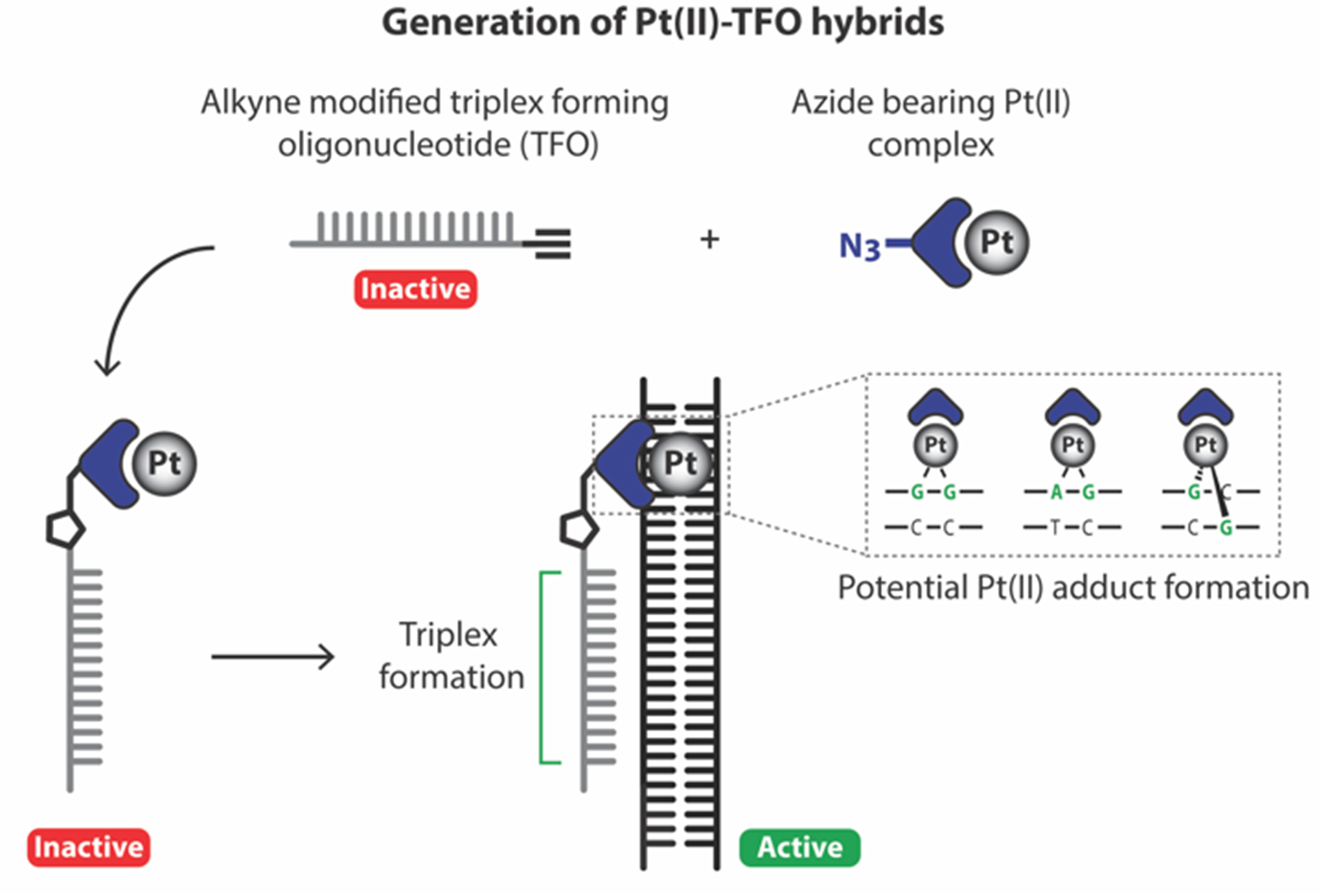Our group at Dublin City University in collaboration with ATDBio Ltd. and University of Oxford have developed a new method for the design of novel platinum drug – nucleic acid hybrids as antisense therapeutics.
The development of this method is founded on the use of ‘click chemistry’ and involves the independent synthesis of biologically active platinum(II) drugs containing azide-modified scaffolds and alkyne-modified triplex forming oligonucleotides (TFOs). Employing click chemistry strategies, these substrates were combined through bioconjugation to generate a library of active platinum(II)-nucleic acid hybrids that present opportunities as gene-targeting agents.
Platinum-based metallodrugs have formed the mainstay of cancer therapeutic regimens however resistance and dose-limiting toxicity issues still to this day present a significant challenge for their use in combatting recalcitrant cancers such as triple-negative breast cancer or glioblastoma multiforme.
A major aspect of this challenge is to prevent off-target specificity of the metal-based drug agent. To enhance target discrimination, short nucleic acid sequences known as TFOs were employed as gene-directing probes. These sequences are designed to only target gene tracts of interest and prevent off-targeting issues.
Working in collaboration with Prof. Tom Brown and his team based in ATDBio Ltd., platinum(II)-TFO hybrids were developed that demonstrated precise targeting of the green fluorescent protein (GFP) gene. The work affords a novel modular approach for the preparation of platinated TFOs, provides precise triplex formation and subsequently demonstrated specific targeting and crosslinking of targets of interest without specificity issues.
The results are very exciting and represent the first examples of platinum(II)-TFO hybrids designed using this methodology. Future approaches to fully realise the biological potential of these platinum(II) hybrids within antisense technology may involve the use of a number of DNA base modifications such as phosphorothioate backbone linkages. These modifications must be combined with a unique targeting strategy, whereby mutant genes or oncogenes are specifically targeted by this technology to achieve selectivity over normal cells.
Dr. Andrew Kellett, Associate Professor of Inorganic and Medicinal Chemistry in DCU School of Chemical Sciences, Principal Investigator of Biodesign Europe, and Funded Investigator of the SSPC and CÚRAM SFI Research Centres, is the corresponding author of the study. The paper “A Click Chemistry Approach to Targeted DNA Crosslinking with cis-Platinum(II)-Modified Triplex Forming Oligonucleotides” has been published in the journal Angewandte Chemie and is an open access publication.
